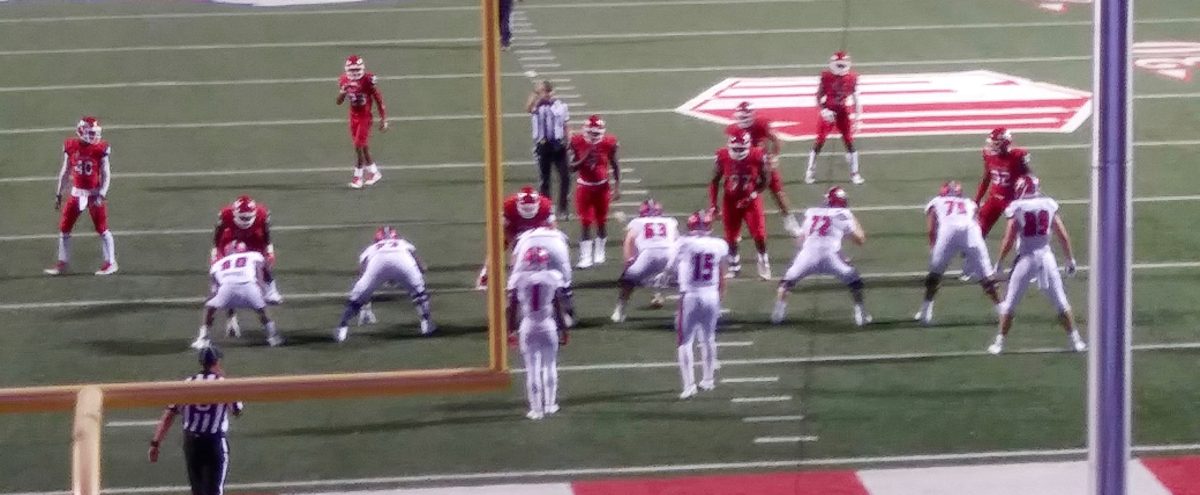
If sports betting were legalized, gamblers could wager on college football games. File Photo
Written by
On Monday, the Supreme Court ruled in favor of New Jersey in a lawsuit the NCAA filed against the state, overturning a 25-year federal ban on sports betting.
In Murphy v. NCAA, the court’s 6-3 decision brought with it broader implications, in essence undoing the 1992 Professional and Amateur Sports Protection Act and leaving the decision to state legislatures.
Now, as the court’s decision is primed to break up monopolies and begin reaping profits from a hundred-billion dollar underground industry, a bill in California is already being proposed by Assemblyman Adam Gray out of Merced to move California to collect on a big wager.
When New Jersey’s former governor Chris Christie signed a law in 2012 allowing sports betting, the NCAA, along with the MLB, NBA, NFL and NHL filed suit claiming to protect the integrity of their sports, according to New Jersey Advance Media’s website. The hope was to let Atlantic City’s casinos cash in on the billions of dollars in bets made in the underground market.
Now representatives in New Jersey claim they are ready to move on the decision within weeks, meanwhile in the Central Valley, the windfalls of the decision are still long from being seen.
Gray’s constitutional amendment written last year is being pushed in anticipation of the ruling, according to Adam Capper, legislative director for Gray. It’s next step will be to the Governmental Organizational Committee, which Gray chairs.
“The state stands to gain from bringing that out of the shadows and into the light and providing consumers a safe, regulated activity that has prohibitions against fraud,” said Capper.
California’s situation is unique compared to other states like New Jersey, as the constitution explicitly forbids certain forms of gambling, including sports betting.
So a 2-part solution has to be undertaken. First, the amendment has to go before voters and the soonest that could take place would be March of 2020.
The second part involves work from the legislature to form an agency with the authority to regulate things like licenses and questions about how to negotiate between bricks-and-mortar and online bookies.
But should Californians approve the legalization of sports betting, rough estimates put annual revenue for the state anywhere between $100-$200 million, said Capper.
The Illegal betting economy could range anywhere between $150 billion to $400 billion, said Kyle Kirkland, president of Club One Casino in Fresno and president of the California Gaming Association. The American Gaming Association also puts estimates at around $150 billion.
“Because so much of it has been underground it’s hard to say what the size of the market is,” Kirkland said.
The problem in Kirkland’s eyes is getting all of the stakeholders on board. There are tribes, tracks, collegiate and professional sports, as well as those opposed to gambling who have to be on board for something to pass.
But while sports gambling may have the largest margins for casinos, it can mean a lot for both sports fans and the leagues.
“I learned extremely fast how radically important gambling is to sports,” said William Tatham, former president of family-owned United States Football League’s Arizona Outlaws. “If I’ve got four dollars on the game, I’m watching every play.”
In an interview with NPR, Andrew Brandt, director of sports law at Villanova University quoted Nielsen research that showed NFL fans who bet on games on average watched 45-50 games a year, compared to non-bettors who only watched 15-16 games.
“Nobody’s going to lose their homes, but it’s a lot more fun,” Tatham said.








